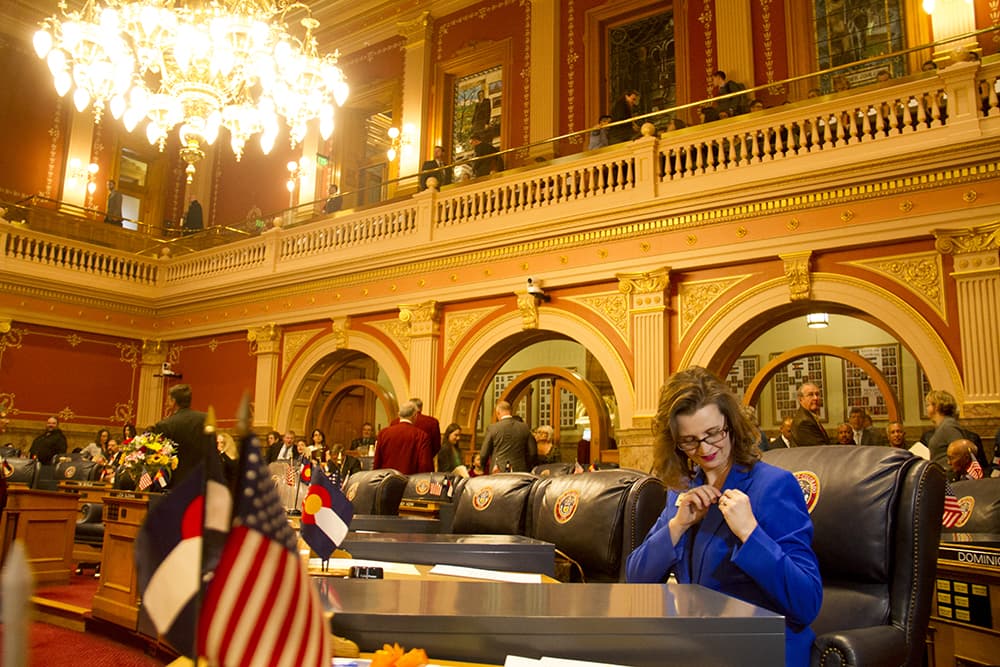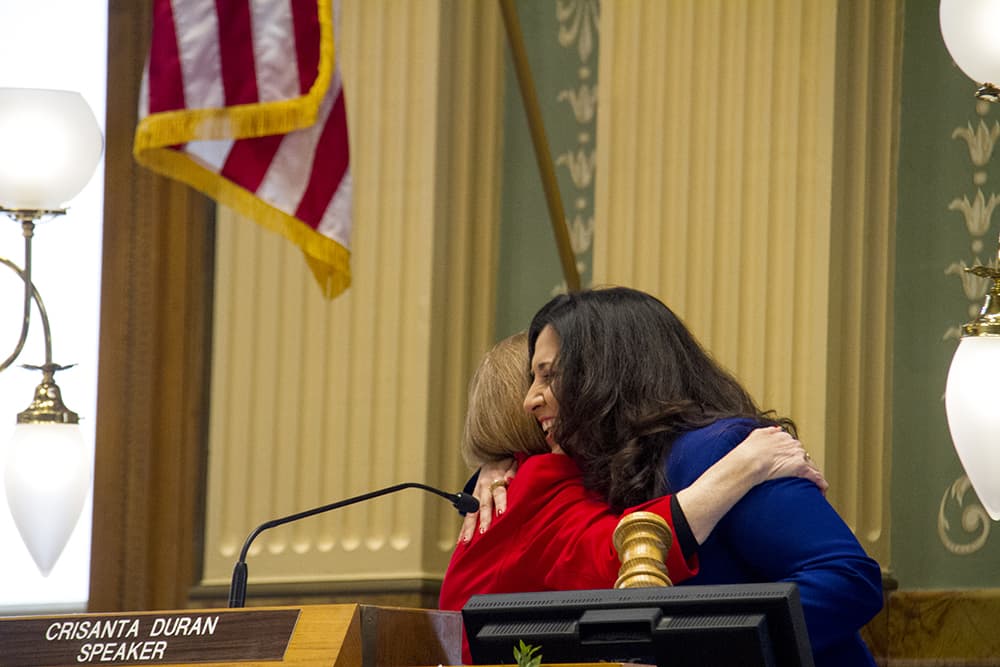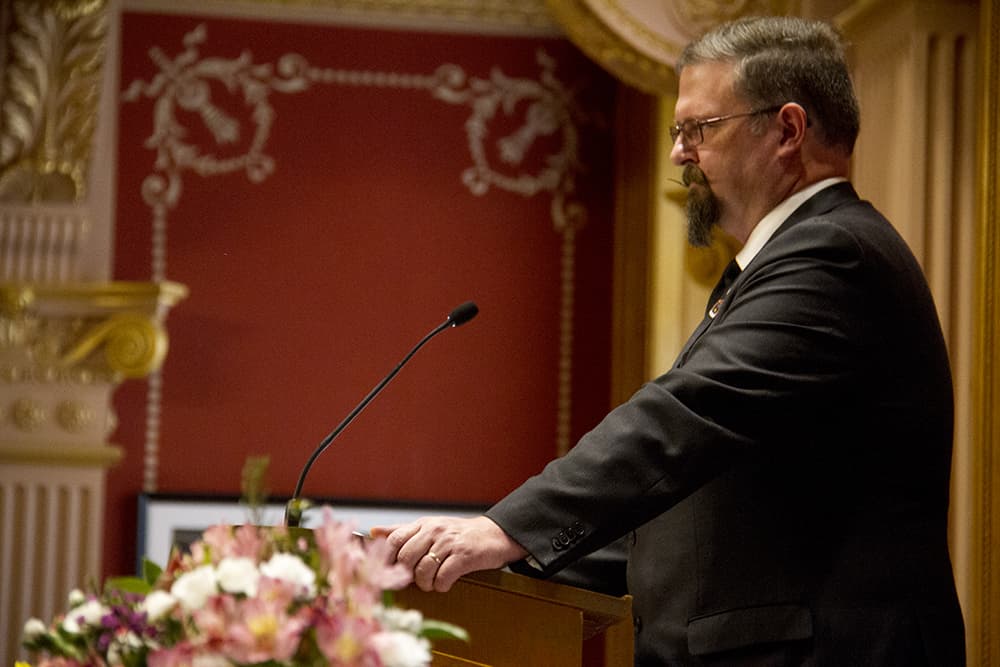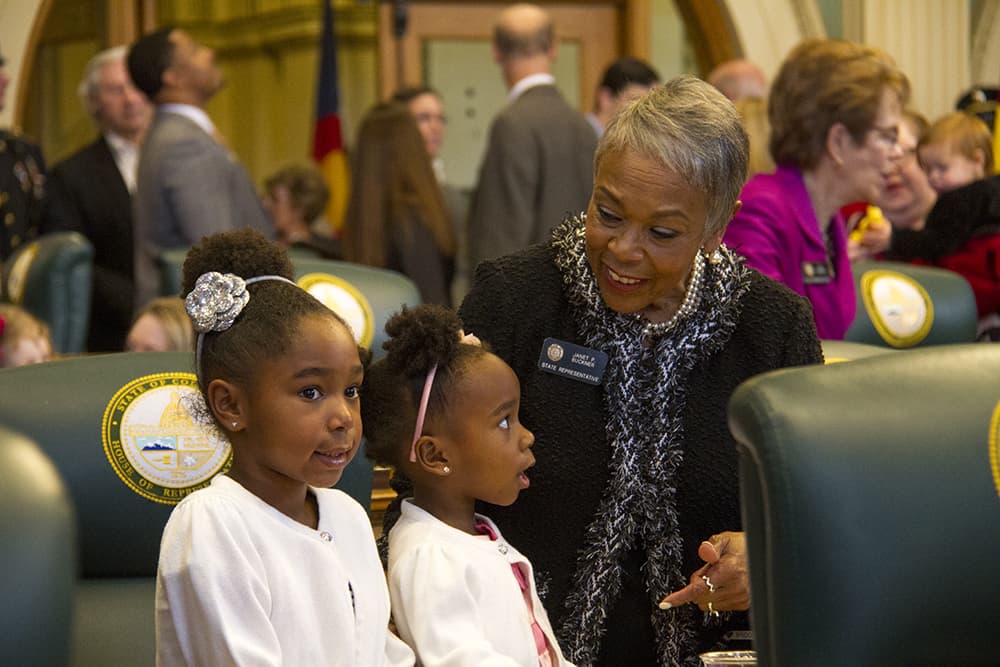
Nobody likes potholes.
Roads and the need to spend more money on them might be the one area of agreement as the Colorado General Assembly kicks off its 2017 session. Even where that money will come from -- a bond program paid out of existing revenues or a new tax sent to the voters -- will be a subject of debate this session.
The speechifying Wednesday was full of paeans to bipartisanship and shared values -- and the need to accomplish business left undone by previous legislatures -- but some of the policy proposals were practically shots across the bow, like Senate President Kevin Grantham's call to repeal Colorado's health care exchange, indicating a contentious session ahead.
And even in the abstract, those supposedly shared values come from distinct perspectives.
As Vic Vela from Colorado Public Radio noted, "inclusiveness" was the key word in Speaker of the House Crisanta Duran's speech and "freedom" was the key word in House Minority Leader Patrick Neville's. Put another way, Duran, a Denver Democrat, wants government to make sure people aren't left behind, and Neville, a Littleton Republican, wants government to stay out of the way of people and businesses trying to do their thing.
Duran, the first Latina speaker of the Colorado House, was met with a standing ovation and whoops of approval as she took the helm of the House and recounted her family story: the grandfather who was a steelworker in Pueblo, the grandmother who left school in third grade to care for her siblings and never learned to read or write, who each paved the way for the next generation to go to college and achieve more.

"It’s the American story, but not one that we can take for granted," Duran said. "Even today, eight years removed from America’s last great economic downturn, too many Colorado families still face daunting challenges. Some parents struggle with heavy debt and worry about being able to put their kids through college. Other Coloradans are being priced out of their homes in the very communities that they grew up in, or they struggle with the high cost of childcare. ... Our work here for the next 120 days is to serve everyone in our state by making it easier to succeed. Government is not intended to work only for those at the top or for those with the lowest incomes. Government is intended to work for everyone."
Duran, as well as Senate Minority Leader Lucia Guzman, pointed to past accomplishments to highlight what government can do for people: civil unions back when gay marriage was still illegal, in-state tuition for undocumented immigrants, tax credits and savings accounts to help people buy homes. And they said the state needs to do more on education, on roads and on job training.
In contrast, Neville said he would defend gun rights, oppose abortion and seek to cut regulations. He cautioned that government should not try to solve every problem.
"Government serves very important roles, but it is inherently intrusive and consumptive," he said. "Every law, rule and regulation requires tax dollars to implement, enforce, and document. While well-intentioned, every program we create in this building requires more tax dollars. We are all aware of the challenges we have in our budget, but members, every year we have to make difficult decisions. We will always have to prioritize how we spend people's tax dollars."
And the top priority, he said, should be transportation. While Duran called for a tax package that includes money for roads and public transportation to be sent to the voters, Neville said the state can fund a bond package with money that already exists in the general fund.
Neville also presaged the budget debate to come by questioning the Democratic framing around the budget. The governor's budget calls for $500 million in cuts even as it is roughly $1 billion larger than last year. The problem, Neville said, isn't that Colorado doesn't have enough money but that it spends too much. But he acknowledged that paying for roads and education would mean cutting in other areas.
Colorado's legislature remains divided, as it has been since 2014, between a Democratic-controlled House of Representatives and a Republican-controlled Senate. Getting bills to Hickenlooper's desk requires compromise, which is sometimes elusive.
Leaders from both parties suggested there may finally be progress this year on construction defect reform.
In the Senate, Grantham has hinted at some openness to a new tax for transportation, but with his call to get rid of the health care exchanges and to make it easier to arm teachers in schools, he indicated Republicans will be pushing their own agenda.

"It is time for us to shed some of the dead weight of failed government policy," Grantham said.
The long-term future of the exchange is up in the air as Republicans in Congress threaten to repeal the Affordable Care Act, but Gov. John Hickenlooper has suggested it could actually be expanded, perhaps into a regional exchange with neighboring states who don't have their own, as people will continue to need a way to shop for plans even if the ACA goes away.
Hickenlooper will lay out his own agenda Thursday in his State of the State address.













